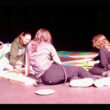From the Wallowa County Chieftain, Enterprise
The decision of the International Olympic Committee to resolve the controversy surrounding the ice skating pairs competition by awarding two gold medals–one to the Russian team and another to the Canadian team–may diffuse some of the uproar over alleged misconduct on the part of Olympic judges, but it nevertheless sends a bad message to athletes at all levels of competition.
The message is this: If at first you do not win, complain about the officiating.
Complaining about umpires’, referees’ and judges’ decisions at sporting events is nothing new. In fact it is a tactic we expect from athletes during their formative years, as they learn to cope with the agony of defeat.
Blaming the officials is a common excuse used to explain poor performance. Unfortunately, this tactic is often reinforced by spectators and parents who have not grown up themselves.
We have all seen them–parents who live vicariously through the athletic performance of their children–who sit on the sidelines hurling insults at the officials. Sometimes even the coaches stoop to this kind of behavior, ranting and raving about some grave injustice inflicted upon their players by an official who they perceive as incompetent, blind or in the other team’s court. More often than not, the whining, complaining and ugly faces have more to do with their own egos than the performance of the referee.
Once in a while, an official makes a bad call. Occasionally, but not very often, a bad call will reverse the outcome of the game.
What poor sports and those who live vicariously through the performance of their kids tend to forget is that these events are just games and that putting up with a bad call once in a while is as much a part of the contest as making a touchdown, swishing a field goal, or knocking a home run out of the park. It goes with the territory. One of the lessons athletes need to learn through sports is that life is not always “fair”.
It is one thing for teenagers who have not learned the finer points of competitive honor to blame the officials for an unfavorable outcome–hopefully, as they are molded by time and experience, they will learn to accept officiating, good or bad, as part of the game.
It is something else altogether to elevate complaining about officiating to the level represented at the Olympics, as was the case the past couple weeks in the pairs figure skating. The Canadian team and Canadian fans dishonored themselves by complaining about the decision of the ice skating officials to give a one-point advantage to the Russian team.
What is worse is that the Olympic committee caved into those complaints and devalued the sport of figure skating and Olympics themselves by giving out two gold medals in a single event.
The theory is that by giving the gold to Canadian skaters Jamie Sale and David Pelletier justice was served, no one has to go home with their feelings hurt, and everyone comes out a winner.
That may be the way things work in fair tales and figure skating but it is not the way things work in real life.
Rick Swart




